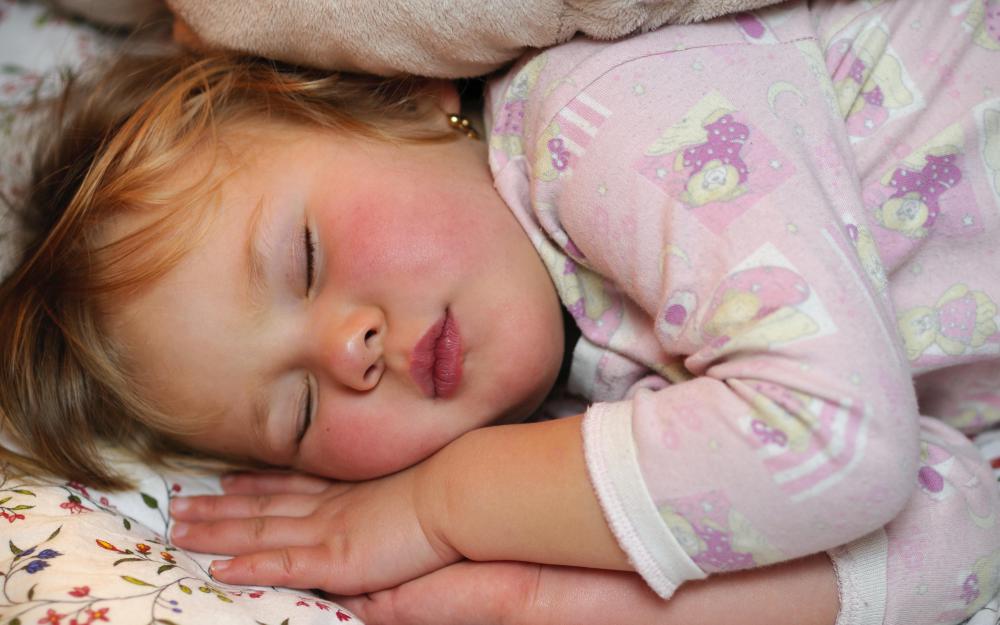At WiseGEEK, we're committed to delivering accurate, trustworthy information. Our expert-authored content is rigorously fact-checked and sourced from credible authorities. Discover how we uphold the highest standards in providing you with reliable knowledge.
What is a Bedwetting Alarm?
A bedwetting alarm consists of a moisture-sensitive sensor placed on a sleeping child's underwear and an electronic audio/vibratory alarm placed near the child's head. When the first drops of urine are detected, the sensor activates the bedwetting alarm system and the child should awaken. This gives the child enough time to visit the bathroom instead of urinating on the mattress. Manufacturers and proponents of bedwetting alarms claim a 70% success rate over time.
Nighttime bedwetting, also known as nocturnal enuresis, can be a frustrating condition for both child and parent. Most medical professionals believe that nighttime bedwetting is caused by small bladders, inability to realize bladder fullness or environmental stress. Few cases of nocturnal enuresis can be attributed to an actual physical disease. A bedwetting alarm system conditions a child to recognize the first signs of involuntary urination, so eventually he or she will wake up voluntarily whenever the urge strikes.

Different bedwetting alarm manufacturers offer different versions of the same basic principal. The sensor end may be in the form of a soft probe placed inside the child's snug underwear, or it may be clipped externally with a small spring attachment. Other bedwetting alarm systems may require parents to insert special pads connected to sensors or attach a dome-shaped device over the entire genital/urinary region. All of these sensors attempt to detect the very first drops of expelled urine, although some methods may be thwarted by misplaced sensors.

The use of a bedwetting alarm is only one part of the larger picture when it comes to nocturnal enuresis. Children who suffer from bedwetting problems may also suffer socially and emotionally. Parents and siblings must understand the underlying embarrassment behind the need for a bedwetting alarm. Experts suggest that parents encourage their bedwetting children to stretch their bladders by waiting longer between bathroom visits. Siblings should be instructed not to tease a bedwetter for a problem he or she cannot control. Children who wet the bed may also want to help with the clean-up and laundering chores.

A bedwetting alarm is considered to be the most effective solution for nighttime bedwetting because it restores control over urination urges to the child. Some medications may stop the bladder from functioning overnight, but there are side effects associated with these medications. Parents seeking a minimally intrusive and safe procedure for discouraging long-term enuresis should consider purchasing a quality bedwetting alarm.
AS FEATURED ON:
AS FEATURED ON:














Discussion Comments
Wireless alarms which can alert both the child and parent are particularly convenient. New technologies allow multiple alarms with choices in the actual alarm device (sound, light, etc.) and are very easy to attach and detach to underwear with magnetic attachment eliminating having to buy any supplies or modifying clothing. DryBuddy is a new alarm system which has been working extremely well.
It is helpful to restrict liquids a few hours prior to bedtime. Taking honey before going to sleep seems to help too, since honey absorbs liquid, and therefore there is less of a need to visit the bathroom.
Post your comments